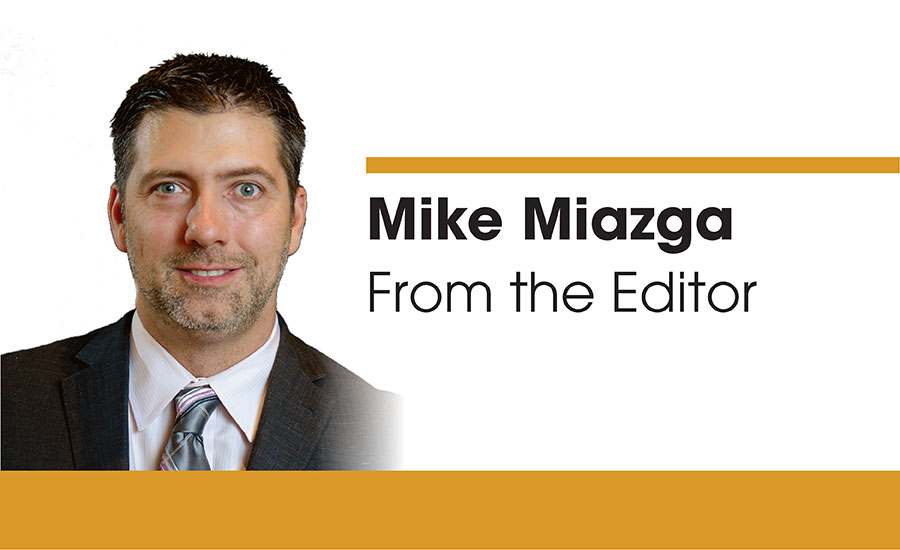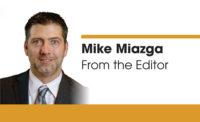Mike Miazga: Sleep on it

When I was younger, I used to think sleep was optional.
My first memory of sleep deprivation was pulling an all-nighter at the department store I worked at in high school and college (anybody remember Service Merchandise?). This was the dreaded inventory counting night store honchos tried to couch as a fun experience, complete with pizza catered in. Somehow rolling around an archaic computer on a shopping cart and counting bottles of red fox urine doesn’t sound as appetizing as a solid eight hours of shuteye.
When I was coaching high school baseball and golf, and getting my newspaper career off the ground, it would be routine for the phone to ring at 5:30 a.m. for my substitute teaching assignment and for me to not walk back through the door until 1 a.m. the next morning after finishing work on the copy desk. Winter was my favorite season back then because I wasn’t coaching a winter sport at the school and could take a three-hour nap before going into the paper.
But as I get older, I quickly have realized sleep isn’t something that should be thrown in your optional cart.
The American Academy of Sleep Medicine agrees. It says adults age 18 and older should get between 7-8 hours a day of sleep. However, one study shows Americans sleep 6.8 hours per day on average, down more than an hour from 1942. Also, 59% of Americans get seven or more hours of sleep at night (well-done 59%ers!) while 40% get less than seven hours.
In that same study of the folks in the six hours or less category, 32% say they are getting as much sleep as needed, but 67% in that category say they would feel better with more sleep.
And this quartet of notes from the Start Sleeping website (startsleeping.org): About one in four people age 18 to 24 say they don’t sleep well because of technology; Sleep deprivation increases the expectation of gains and decreases the estimation of possible losses; and decision-making in “high-stakes, real-world situations” is impaired when someone experiences sleep loss.
According to the National Sleep Foundation, 45% of Americans say poor or insufficient sleep affected their daily activities at least once in the past seven days. That study puts the average sleeping time slightly higher at 7 hours, 36 minutes with folks going to bed at 10:55 p.m. on average and getting up at the rather specific 6:38 a.m. on workdays, while sleeping about 40 minutes longer on weekends.
Now to the really pay attention stuff: In that NSF study, 67% of folks with less than good sleep quality also report poor or only fair health. Also from NSF, being awake for 18 straight hours makes you drive like you have a blood alcohol level of .05 (.08 means you are getting a new headshot taken at the local lockup). If you have been up for 24 hours straight and get in a car, that’s akin to having a BAC of .10.
My point to all this is we operate in an industry where we are constantly on the go from meeting to meeting, event to event and city to city. Those of us who travel extensively likely are sacrificing a good amount sleeping hours along the way.
I used to take a lot of 6 a.m. flights, thinking it was better to stay at home for an extra night. Between waking the entire family up at 2:30 a.m., and the way my body felt when I got up (likely getting to bed at 11 p.m. or later due to last-second packing the night before), I stopped that practice and have taken to getting into the city the night before.
For road warriors, NSF suggests that when you are off your normal routine to limit naps to 20 minutes (preferably between 2 and 3 p.m.), listen to soothing music, ditch direct contact with tech devices before bed, and try not to eat in the vicinity of bed time. Booze? No good. Even one drink near bedtime can disrupt sleep later in the night. And even if you didn’t get much sleep, try and stick to your usual wakeup time. It can help you get back on track with your usual sleep routine.
In a world that never seems to slow down, make sure you are taking care of yourself so you can tackle life’s craziness full-steam ahead.
Looking for a reprint of this article?
From high-res PDFs to custom plaques, order your copy today!




